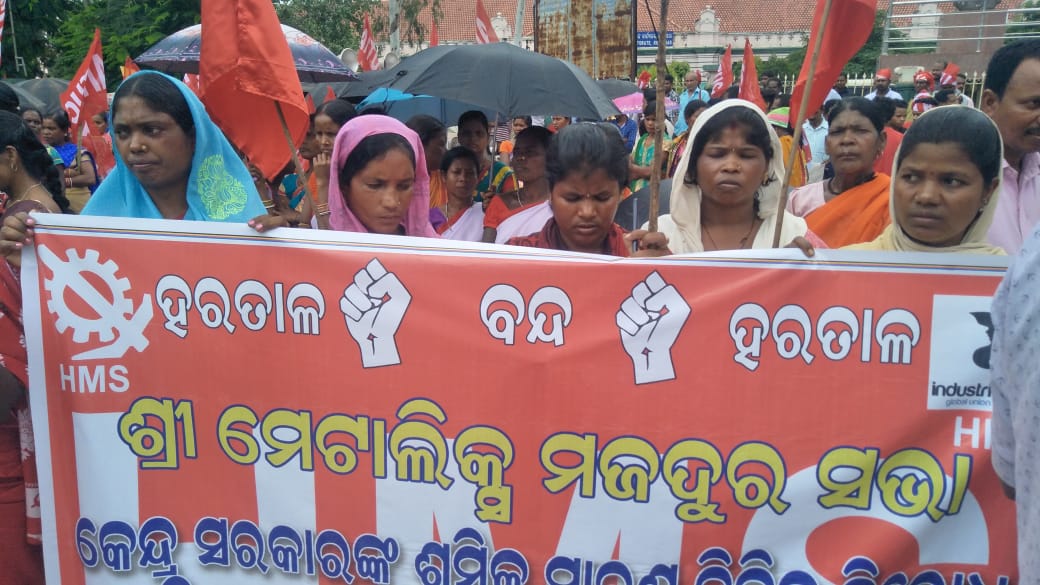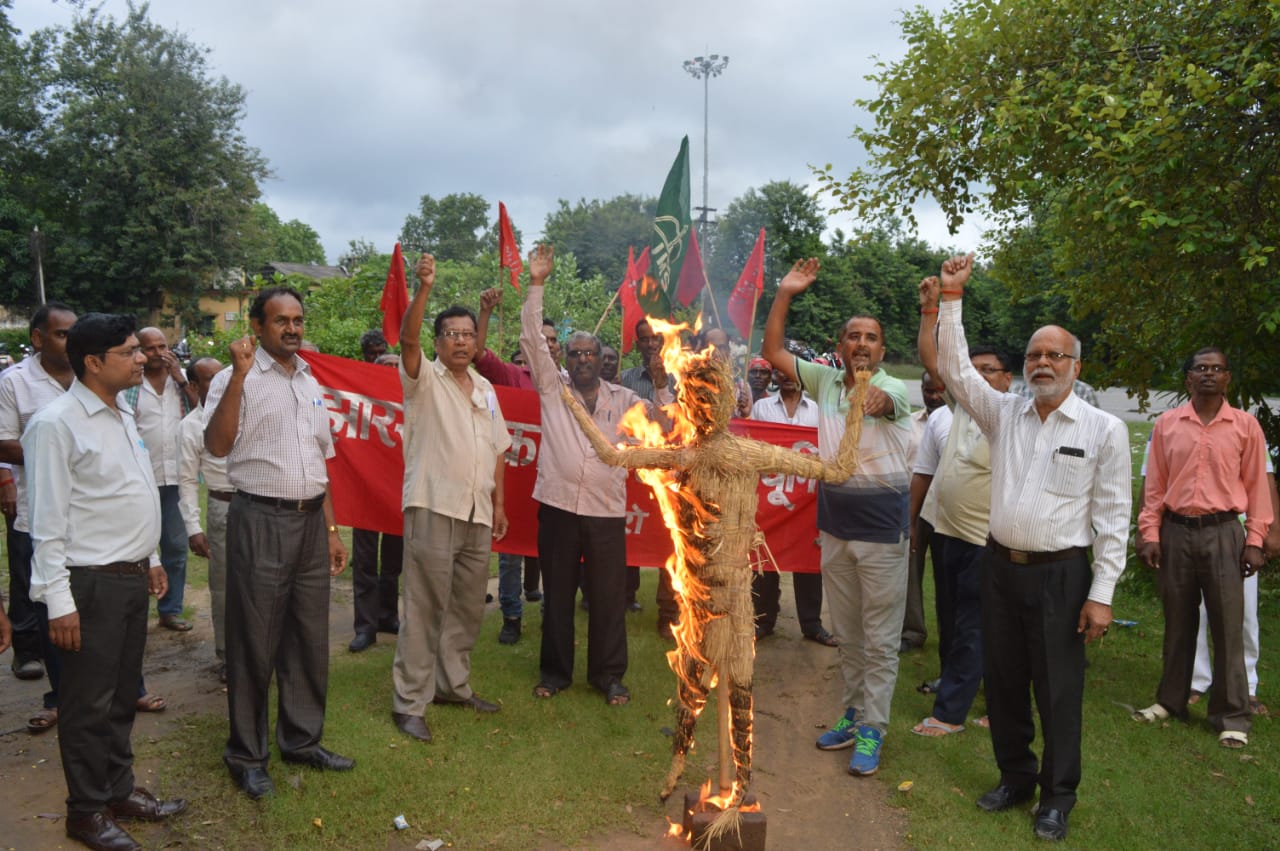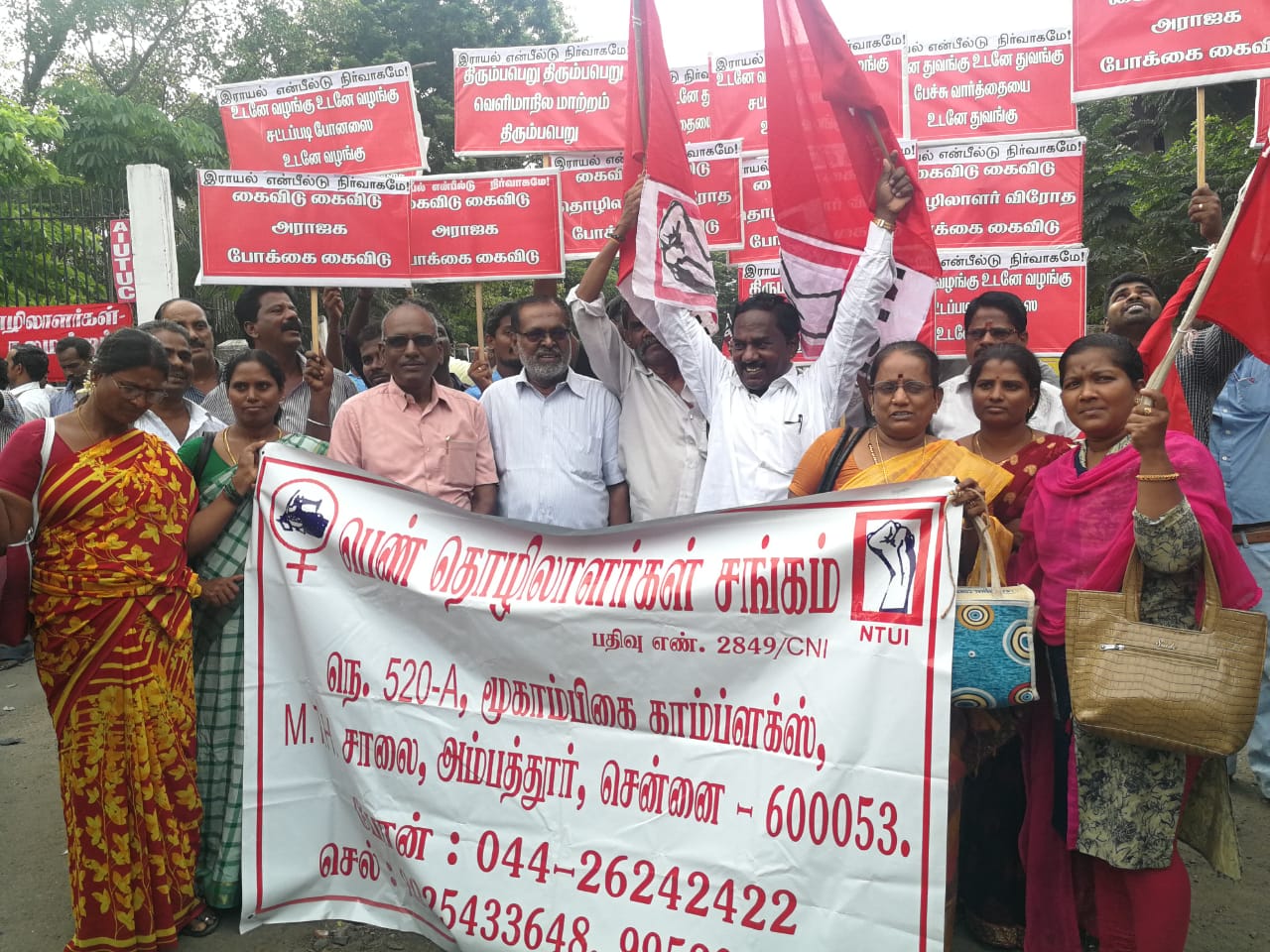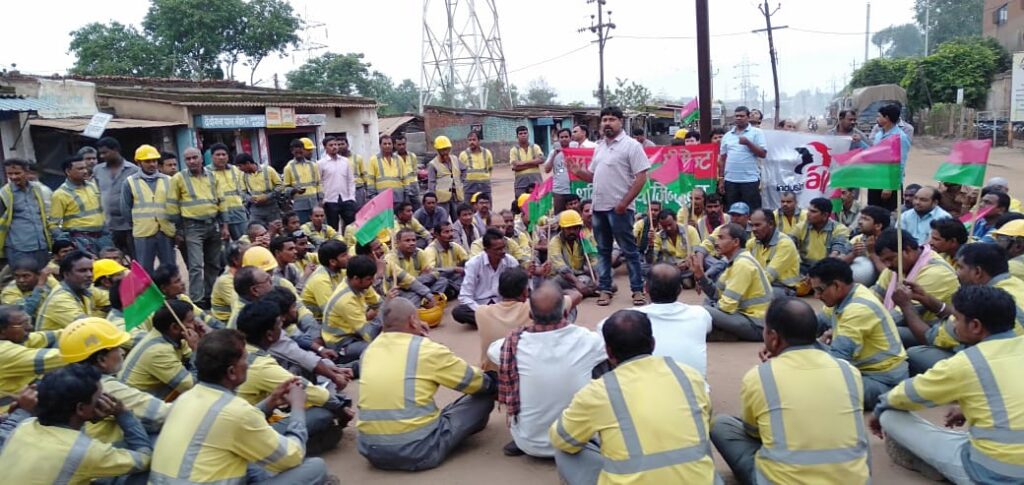8 August, 2019A massive wave of protest across the country on 2 August against the Modi government’s corporate friendly labour law reforms highlights the crisis of social dialogue in India.
Workers across India, including those from IndustriALL’s affiliates, hit the streets in response to central trade unions’ call for nationwide protests on 2 August as the Modi government introduced the Code on Wages Bill and the Code on Occupational Safety, Health and Working Conditions Bill in Lok Sabha in the current parliament session.

The Code on Wages, which has now been passed by the parliament, amalgamates four separate labour laws that govern fixing and paying wages. Unions say the new code reneges on progress made in the recent past through social dialogue and undermines the participation of union representatives in the process of fixing minimum wages.
While unions demanded that minimum wages should be revised annually, the new code allows the revision at least once in five years. The code on wages also grossly dilutes the inspection regime by replacing the labour inspector with an ‘inspector-cum-facilitator’ and introduces a web-based, randomized, computerized inspection scheme, jurisdiction-free inspections and reviewing information electronically for inspection.

Modi is attempting to amalgamate 44 existing labour laws into four simple labour codes.
The code on occupational safety, health and working conditions subsumes thirteen existing labour laws and is yet to be passed by the parliament. These and other two labour codes on industrial relations and social security are part of the Modi government’s attempt to amalgamate 44 existing labour laws into four simple labour codes.
Existing labour laws were originally enacted as a result of workers’ struggles and address specific needs and protections of workers’ rights in a variety of manufacturing, services and construction sectors. Trade unions have opposed the oversimplification of labour laws and contend that both the bills absolutely ignored objections raised by unions.
In a press release, the central trade unions stated that by repealing existing laws, the government, “in their most obedient services of their corporate masters” has grossly tampered with the workers’ rights and excluded a large number of workers from coverage by labour codes.

"Trade unions genuinely are ignored while the principal purposes of the labour code seem to be facilitating ease of doing business."
Dr. G Sanjeeva Reddy, IndustriALL executive committee member and the president of the Indian National Trade Union Congress said that,
“The working class in India is facing the worst ever onslaught on workers’ rights under the Modi government. All social dialogue institutions, traditions and practices that were painstakingly built for over seventy years are undermined. Trade unions genuinely are ignored while the principal purposes of the labour code seem to be facilitating ease of doing business. In coming days trade union movement’s united resistance will be intensified.”
Central trade unions participating in the nationwide action include INTUC, AITUC, HMS, CITU, AIUTUC, TUCC, SEWA, AICCTU, LPF, UTUC and independent federations and associations of workers and employees.
